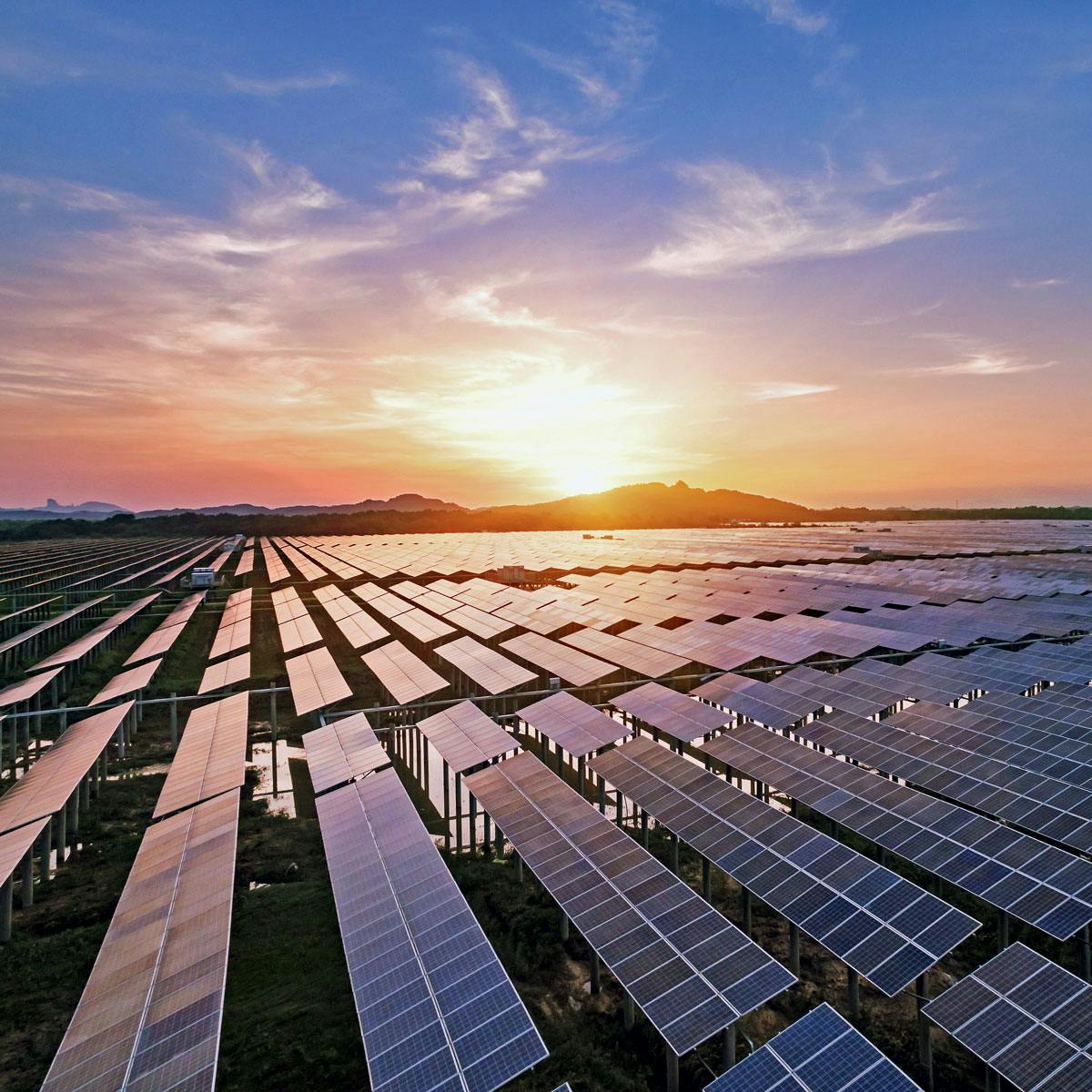CLIMATEAccelerating the economy’s transition to low-carbon energies
The Group has long been involved in supporting economic players in their transition to low-carbon energies and regularly measures and reports on its own trajectory. As part of its strategic plan, BNP Paribas has embarked on a new phase of acceleration, making significant, concrete and time-bound commitments. Here is a review of some key milestones achieved in 2024.
Since 2022, BNP Paribas has been aligning its portfolios with trajectories consistent with the Paris Climate Agreement. In terms of financing the energy production sector, we took another step this year: at the end of September 2024, low-carbon energy accounted for 76% of our credit exposure to energy production, up 36% over two years. This represents €36.8 billion for low-carbon, of which €34.2 billion was for renewable energies.
SUPPORTING EACH SECTOR IN REDUCING ITS EMISSIONS
The alignment of our credit portfolio is not limited to the energy sector. In 2024, we set decarbonisation targets for three more high-emitting sectors: aviation, shipping and commercial real estate. They complete the list of six sectors drawn up in 2022 and 2023: oil and gas, power generation, automotive, steel, aluminium and cement. The Group and all its entities also strive to reduce their direct environmental impact on their operating scopes.
PUTTING AI TO WORK IN THE FIGHT AGAINST CLIMATE CHANGE
According to the World Economic Forum, artificial intelligence (AI) plays a key role in identifying climate risks and associated investment opportunities. To make the most of its strengths, the Group works with a large ecosystem. In March 2024, it signed a historic R&D partnership with Kayrros, an AI-based environmental intelligence company. Using AI and satellite imagery, Kayrros has designed the first platform analysing satellite data from the European Space Agency and NASA to track methane emissions from the oil and gas industry and help accelerate their reduction. This partnership is part of the Bank’s commitment to develop open-source tools and methodologies to measure climate alignment.
LAUNCHING INVESTMENT FUNDS TO SUPPORT THE ENERGY TRANSITION
BNP Paribas Asset Management launched its first active global equity fund dedicated to the net-zero transition, BNP Paribas Global Equity Net Zero Transition(1), one of the few active equity funds in the market with net-zero alignment as a primary objective with a just transition lens. This fund, diversified across sectors and regions, is committed to having at least 50% sustainable investments and integrates a charity share class to fund the NGO “Électriciens sans Frontières”(2) (Electricians without Borders).
In close collaboration with the Corporate & Institutional Banking division and BNP Paribas Cardif, BNP Paribas Asset Management has also created BNP Paribas Climate Impact Infrastructure Debt. This fund, classified under Article 9 of the SFDR(3), offers a comprehensive financing solution for projects and players involved in the energy transition and climate change mitigation.
€500-750mThis is the BNP Paribas Climate Impact Infrastructure Debt’s fund-raising objective from institutional investors.

Contributing to the development of a major leader in renewable energies
Global Banking advised Brookfield, a leading global investment firm and one of the world’s largest investors in renewable energy, on its acquisition of Neoen, one of the world’s leading renewable developers. Following the acquisition of a majority stake from Neoen’s founder and long-term shareholders in December 2024, Brookfield has filed a tender offer to acquire 100% of Neoen’s share capital. Brookfield’s access to capital and deep industry knowledge will help to accelerate the growth of Neoen, which already has 8.9 GW of capacity in operation and under construction, and a proven expertise in the solar photovoltaics, wind and energy storage technologies.
The circular economy is gaining ground
Companies are increasingly demanding circular management solutions, notably for their IT assets. To meet their expectations, BNP Paribas 3 Step IT, the joint venture created by BNP Paribas Leasing Solutions and 3stepIT, a leader in circular technology services, is strengthening its offering by opening a technology refurbishment and remarketing centre in France. Consumers are also turning to more environmentally friendly alternatives, particularly in their purchases of technological products - smartphones, tablets and computers. To encourage the reconditioning of these products, Floa offers a new payment solution, Floa CirclePay. By incorporating a trade-in offer for old equipment when acquiring new equipment, it reduces the purchase cost and encourages reconditioning.
